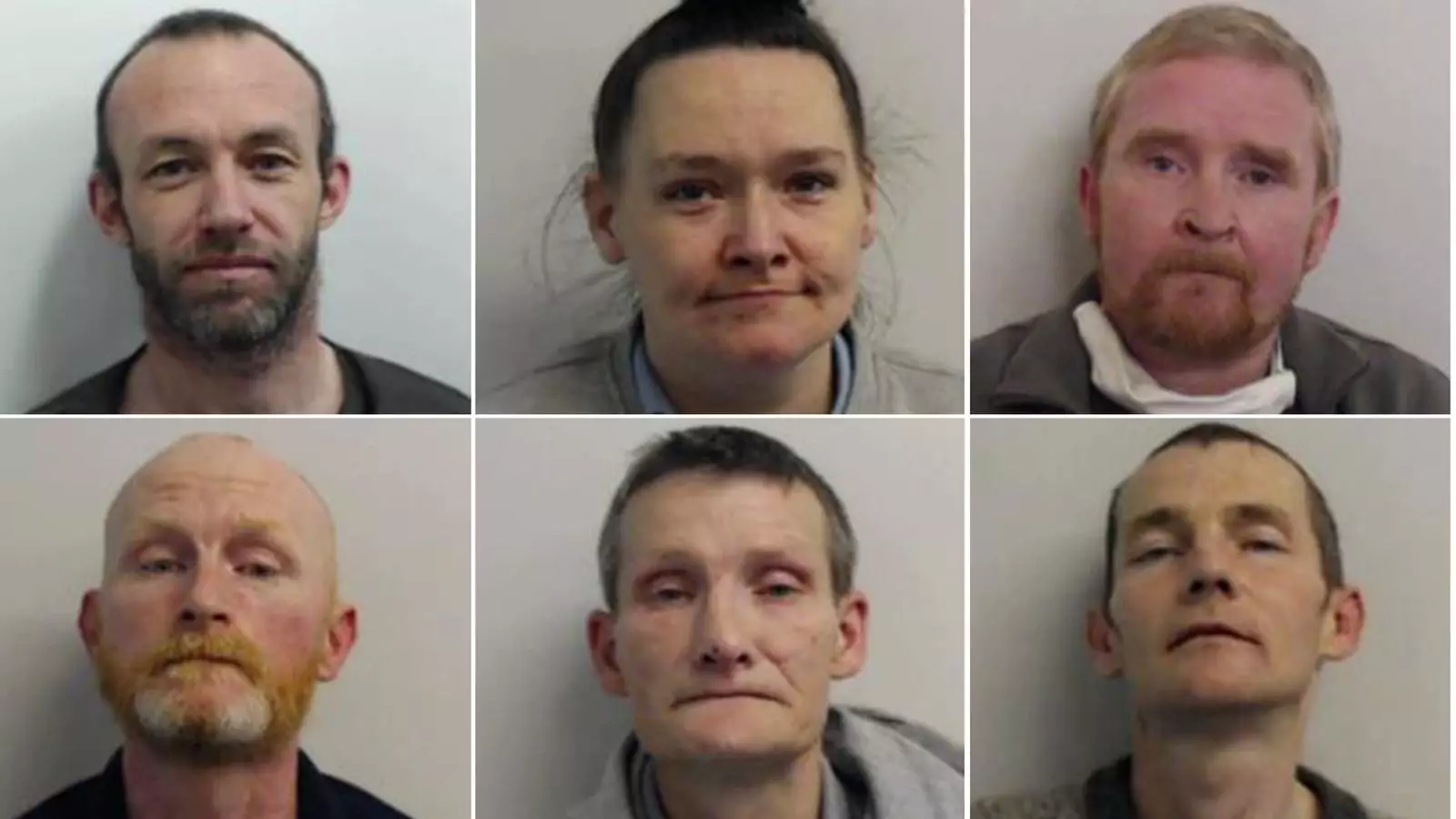In a deeply unsettling case that has captured the attention of the Scottish public, a group of individuals has been sentenced to lifelong restrictions for their roles in an abhorrent child sexual abuse ring based in Glasgow. This case is marked not only by the horrific actions of the perpetrators but also by the profound impact these events have had on vulnerable children. The severity of their crimes has led to an equivalent of life sentences for non-homicidal offenses in Scotland, known as an Order for Lifelong Restriction (OLR).
Over the course of a harrowing two-month trial, disturbing details emerged regarding the systematic abuse suffered by three young victims, who were subjected to an environment rife with Class A drugs and alcohol. The plaintiffs painted a chilling picture of their experiences, describing “rape nights” at the so-called “beastie house,” a term that starkly highlights the dehumanizing nature of their torment. The court heard that these children were not only physically abused but were also exploited in a transaction-like manner, with money changing hands amid laughter from their aggressors.
Judge Lord Beckett, presiding over the case at the High Court in Glasgow, characterized the proceedings as “unpleasant and shocking,” remarking that it led “to the depths of human depravity.” His comments encapsulated the collective horror felt not just within the courtroom but across the broader community. The jury ultimately found seven individuals guilty of heinous acts of rape and sexual assault, leading to varying sentences ranging from eight to twenty years in prison.
The primary offenders – Iain Owens, Elaine Lannery, Lesley Williams, Paul Brannan, Scott Forbes, Barry Watson, and John Clark – each faced the grim ramifications of their actions. Further complicating their cases, Owens, Lannery, Williams, and Brannan were also convicted of attempting murder on a child, employing sinister tactics to confine their victims in objects designed for household tasks—an act that betrays an unfathomable level of cruelty.
The sentences delivered included a minimum term of imprisonment for each convict, but the implications of the OLR extend well beyond incarceration. Should any of these individuals eventually be paroled, they will remain under stringent risk management provisions for life, ensuring that their propensity for criminal behavior will continue to be monitored. The notion that these offenders could one day re-enter society underlines the pervasive anxiety following such a catastrophic breach of trust and safety.
In stark contrast, another defendant, Marianne Gallagher, received a more lenient sentence after being convicted of assault against a child but cleared of more severe accusations. While Gallagher was offered a deferred sentence for good behavior, her history of violence combined with a lack of remorse raised serious concerns about future offenses. Lord Beckett’s warning to Gallagher further underscored the complexities of managing individuals with a history of abusive conduct, particularly in relation to vulnerable populations.
The Broader Implications for Society
These abhorrent crimes occurred over a span of seven years, between 2012 and 2019, shedding light on systemic failures that not only allowed this abuse to flourish but also left lasting scars on the young survivors. Although defense counsel sought to undermine the credibility of the children’s testimonies, the prosecution rebuffed these claims, arguing that the very nature of the crimes was so grotesque that disbelief was unfounded.
Beyond the courtroom, organizations like the NSPCC have called attention to the broader implications of this case, underlining the grave horrors faced by the children involved. The substantial investigative efforts undertaken by Police Scotland, which amassed over 1,000 lines of inquiry, demonstrate a commitment to addressing these heinous crimes.
As Scotland grapples with the fallout from this case, it serves as a critical reminder of the need for vigilant protections for children. The voices of the victims must resonate loudly in calls for systemic changes, heightened awareness, and greater societal responsibility to prevent such abuses in the future. The judicial outcomes, while pivotal, are only the starting point of a much larger conversation about safeguarding the innocence and well-being of the most vulnerable members of society.

